Showing 1-10 of 34 results
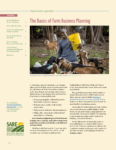
The Basics of Farm Business Planning
Sustainable farming and ranching means taking care of the land, the environment, people and the community, while the farm business makes a profit. Many farmers and ranchers choose sustainable farming and ranching as a lifestyle that reflects their values. Common goals include: Farm business planning is critical because it helps you to identify and achieve […]
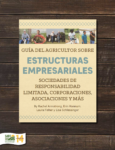
Guía del Agricultorn Sobre Estructuras Empresariales
Establecer y mantener la correcta estructura empresarial para la operación de su granja sienta las bases para un negocio agrícola estable y resiliente. La formación de una estructura empresarial puede ayudar a i) gestionar el riesgo mediante la protección de los activos de las personas propietarias ante las responsabilidades de la empresa; ii) promover las […]
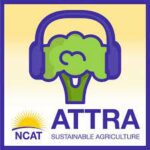
Growing New Markets for Specialty Crops
Voices from the Field is a podcast series co-produced by ATTRA and SARE that explores the different ways farmers are working to create new local markets for specialty and niche crops. Each partner episode will address a different production system or crop–from endives to small-grain value chains–and will feature farmers sharing their production and marketing […]
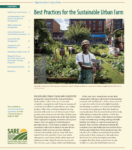
Best Practices for the Sustainable Urban Farm
For decades, urban farms and community gardens have helped meet the demand for fresh, local produce. Urban farms are diverse and adaptable, ranging from small farms on repurposed vacant lots to multilevel vertical farms and rooftop gardens. Often, they combine ecological farming practices with some form of infrastructure. Urban growers make clever use of their […]

The Peri-Urban Agriculture Network: Strategies for Agricultural Viability in Urbanizing and High-Land-Use-Pressure Regions
Many peri-urban regions in the western U.S. are in a state of acute juxtaposition between formerly rural agricultural communities and growing, modern urban centers. Urbanization challenges agricultural viability through land use pressures and a slow unraveling of historically land-based economies and culture. These agricultural circumstances can be very destabilizing and highlight the need for agriculture […]

Grazing Networks for Livestock Producers
Grazing networks promote a mutual self-help approach to learning that is based on shared local experience and that provides several benefits to participants. This publication offers suggestions for finding or starting a grazing network and provides examples of the kinds of activities grazing networks might conduct. It also contains recommendations for sustaining a grazing network […]
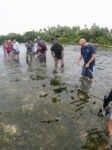
Understanding and Measuring Social Sustainability
This SARE brief defines social sustainability and illustrates how it can be addressed more clearly in SARE projects. Sample projects and quality of life indicators are provided to help grant-seekers and reviewers think broadly about understanding, measuring and describing the social impacts of research and education projects.

Building a Local Food Movement
Over the last few decades, agriculture in western North Carolina has transformed from a reliance on tobacco to a diversified, self-sustaining industry intertwined with local communities and economies. In this video, learn how one organization has worked alongside local farmers and communities to support this transformation.
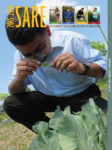
2015/2016 Report from the Field
Read about SARE-funded work in the areas of sustainable dairy cropping systems, soil health assessments, nutrient management, cover crops, beginning farmers, pollinators, technical assistance programs for women farmers, and more. This edition includes highlights of projects funded through the graduate student program, and the highly regarded Sustainable Agriculture Fellowship, a professional development program coordinated by SARE and NACAA.
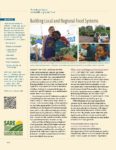
Farm to Table: Building Local and Regional Food Systems
More and more, farmers, ranchers, ag professionals, community organizers and others are striving to reconfigure the nation's food system so more value stays in food-producing communities.